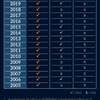BSM Geared to Go on Carbon Compliance Management
With only a few days to go until EU’s Emission Trading System (EU ETS) kicks in for the shipping industry from 2024. Bernhard Schulte Shipmanagement (BSM) reportes it has developed a comprehensive range of carbon compliance and EU ETS management services designed to support owners and operators mastering the complex regulation requirements and to reduce their carbon footprint and related costs.
“Our approach not only encompasses EU ETS management and compliance services but also seeks to optimise ship and fleet performance to reduce CO2 emissions and financial exposure," said Sebastian von Hardenberg, Chief Financial Officer (CFO) of BSM.
BSM’s services cover the monitoring, collection and reporting of required emission data, as well as verification for each voyage affected by EU ETS. The company has devised a highly automated, integrated end-to-end solution, enabling the creation of validated emission statements through the authorized third-party verifier DNV and calculation of equivalent allowances for regulatory compliance. This includes streamlining interactions with EU authorities, and administration of maritime operator holding accounts.
In addition, BSM facilitates market access and acquisition of emission allowances through its extensive network, as it has opened EU registry trading accounts in Germany and Cyprus, onboarded a network of providers and implemented EU allowance trading mechanism.
Another crucial component is optimizing the fleet performance. Anil Jacob, Head of the Fleet Performance Centre, BSM’s central unit supporting performance optimisation and decarbonisation of the managed ships, says, “We enable our crews onboard, shipowners and charterers to make data driven decisions for most efficient vessel operations that reduces their environmental impact and thus costs and comply with or even go beyond the requirements of international regulations. This has always been the core task of our Fleet Performance Centre but is now becoming even more of a focus for owners and charterers.”
BSM tracks major fuel consumption contributors such as the hull, machinery, speed, route, and weather. This approach ensures voyage optimisation, regulatory compliance, and increased vessel energy efficiency. Inefficiencies are promptly identified, allowing for swift corrective actions.
Von Hardenberg points out, “The shipping industry has a diverse structure, ranging from small and medium-sized ship owners to large majors and investment corporations, from EU-based companies to entities that only occasionally or rarely call the European Union.” The CFO says that accordingly the level of knowledge and requirements of the customers are very different. Ultimately, the client decides to what extent BSM’s expertise and support is requested, from standard obligations for emissions reporting to complete EU ETS management on behalf of the owner.
EU Emission Trading System (EU ETS)
In 2024, the European Union’s Emission Trading System will be extended to cover CO2 emissions from all large ships (of 5,000 gross tonnage and above) entering EU ports, regardless of the flag they fly. From 1 January 2024, emissions data have to be recorded, verified and reported for every ship calling an EU port. By 30 September 2025 shipping companies must surrender their first ETS allowances for emissions reported in 2024. The share of emissions that must be covered by allowances gradually increases each year:
- 2025: 40% of emissions reported for 2024 must be covered by Emission Allowances (EUAs)
- 2026: 70% of emissions reported for 2025
- 2027 and beyond: 100% of reported emissions














